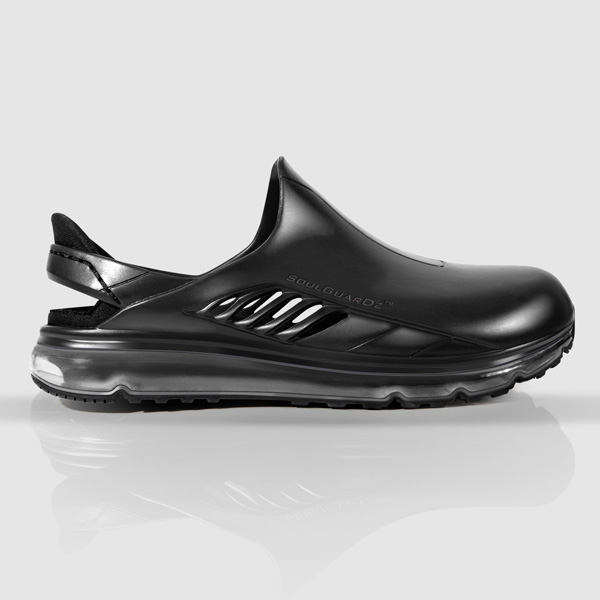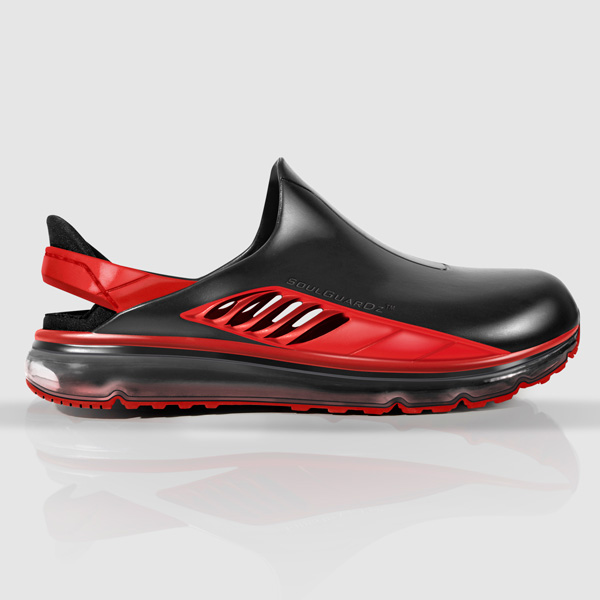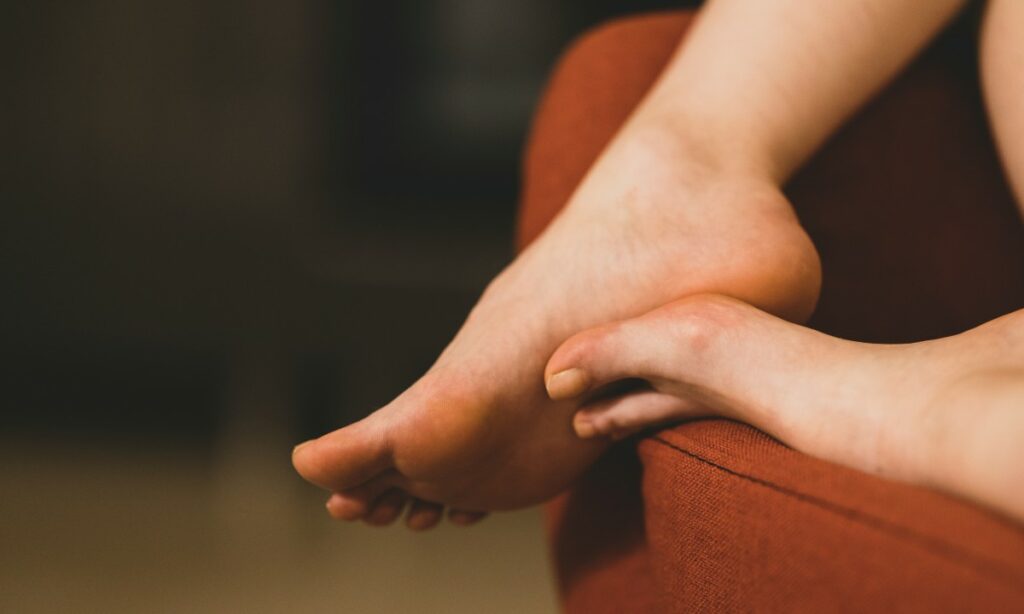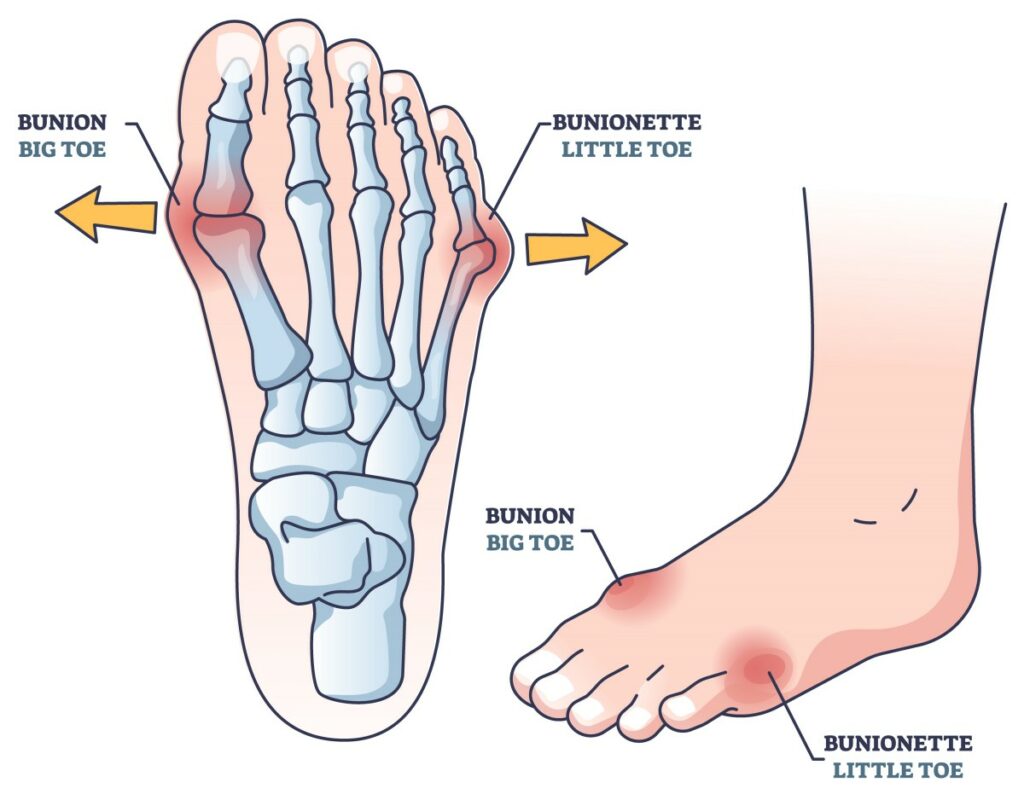
Best shoes for healthcare workers
Importance of proper footwear in healthcare
For clinicians, practitioners, and health workers, the right footwear is not just a matter of comfort, it’s a critical component of their daily uniform that can impact their health and job performance.
Proper footwear in healthcare settings is essential for several reasons.
- Provides the necessary support during long hours of standing and walking, which is a staple of the profession.
- Helps in preventing workplace injuries by offering slip resistance on various surfaces encountered in a healthcare environment.
- The right shoes can prevent the development of chronic pain and foot-related health issues, ensuring that healthcare professionals can focus on their patients rather than dealing with discomfort or injuries.
SoulGuardz shoes for healthcare workers
Common foot-related health issues healthcare workers experience
Healthcare workers are at risk for a range of foot-related health issues due to the demanding nature of their jobs. Prolonged periods of standing and walking without proper footwear can lead to conditions such as plantar fasciitis, varicose veins, and lower back pain.
Additionally, the risk of bunions, corns, and calluses increases with ill-fitting shoes. These conditions not only cause discomfort but can also lead to more serious health complications if left unaddressed.
Key features of ideal healthcare footwear
Shock-Absorbent and Slip-Resistant Soles
For healthcare professionals who navigate the hard surfaces of medical facilities, shock-absorbent soles are crucial. These soles mitigate the impact on joints during long hours of walking or standing.
Equally important are slip-resistant soles, which provide essential traction on slick floors, reducing the risk of falls and injuries. A wider base on the shoe can also enhance stability and prevent accidents.
Lightweight Materials
Shoes crafted from lightweight materials alleviate the strain on feet and legs, making it easier to move swiftly and reducing fatigue. The cumulative effect of wearing heavy shoes can lead to exhaustion and discomfort, so selecting footwear that feels light can make a significant difference in a healthcare worker’s day.
Proper Fit: Width and Length Considerations
A proper fit is non-negotiable for healthcare footwear. Shoes should provide a snug fit without constricting circulation or causing discomfort. There should be at least 1cm of space in front of the longest toe, and the width should comfortably accommodate the foot without causing cramps or allowing excessive movement. A well-fitting shoe prevents the development of calluses, corns, and blisters, and supports natural foot movement.
Durability and Material Quality
Investing in shoes made from durable, high-quality materials ensures longevity and sustained support. Healthcare workers often wear through shoes quickly due to their demanding routines, so choosing footwear from reputable brands that use robust materials can be more cost-effective in the long run.
Ankle Support and Heel Counter Stability
Shoes that offer ankle support can limit harmful movements and provide stability, which is particularly important for healthcare workers who are constantly on the move. A firm heel counter adds to this stability, helping to control the foot’s position. To test the heel counter’s integrity, press on it with your thumb; it should resist bending, maintaining its upright position.
Criteria for selecting the right shoe
Assessing Sole Quality
The foundation of any good shoe for healthcare professionals is its sole. A high-quality sole should be shock-absorbent to minimise the impact on the feet during long hours of walking and standing.
Look for soles made from materials like rubber or polyurethane that offer good traction and are slip-resistant, a critical feature to ensure safety on various surfaces. The sole should also be flexible enough to allow natural foot movement but sturdy enough to provide stability.
Evaluating Shoe Weight
Shoe weight plays a significant role in overall comfort and fatigue levels. Lightweight shoes can help reduce the strain on legs and back during a long shift. However, it’s important not to sacrifice support for the sake of lightness. The ideal shoe will strike a balance, offering enough structure to support the foot while avoiding unnecessary bulk.
Measuring for the Correct Fit
Proper fit is paramount when selecting healthcare footwear. Shoes that are too tight can lead to blisters and calluses, while too loose shoes can cause friction and lack of support. It’s recommended to have your feet measured professionally and to try on shoes later in the day when feet are at their largest due to natural swelling. Remember to account for the thickness of your socks, which can affect the shoe’s fit.
- Length: There should be a thumb’s width of space between the longest toe and the end of the shoe.
- Width: The shoe should snugly fit the widest part of the foot without squeezing.
- Depth: Ensure there is enough room for the toes to move freely without rubbing the top of the shoe.
Checking for Ankle and Heel Support
Ankle and heel support are crucial to prevent injuries and maintain proper foot alignment. A supportive heel counter, the part of the shoe that wraps around the heel, should be firm and not collapse when pressed. It should also comfortably cup the heel to prevent it from sliding out.
Ankle support is especially important for those who may need to move quickly, such as in emergency situations, to prevent sprains and strains.
Waterproof and Easy-to-Clean
In healthcare settings, the need for hygiene and the ability to quickly clean footwear is important. Waterproof shoes made from materials that repel liquids can be a game-changer.
Options like SoulGuardz clogs are not only waterproof but also offer ease of cleaning. These styles typically feature non-absorbent surfaces that can be wiped down with disinfectant wipes or washed under running water, ensuring that cleanliness standards are effortlessly maintained.
Shoes for healthcare workers
In conclusion, selecting the right shoe involves a careful evaluation of sole quality, slip resistance, weight, fit, support and water resistance. By prioritising these criteria, healthcare professionals can ensure they have footwear to perform their duties effectively. You may be interested in shoes for nurses.





